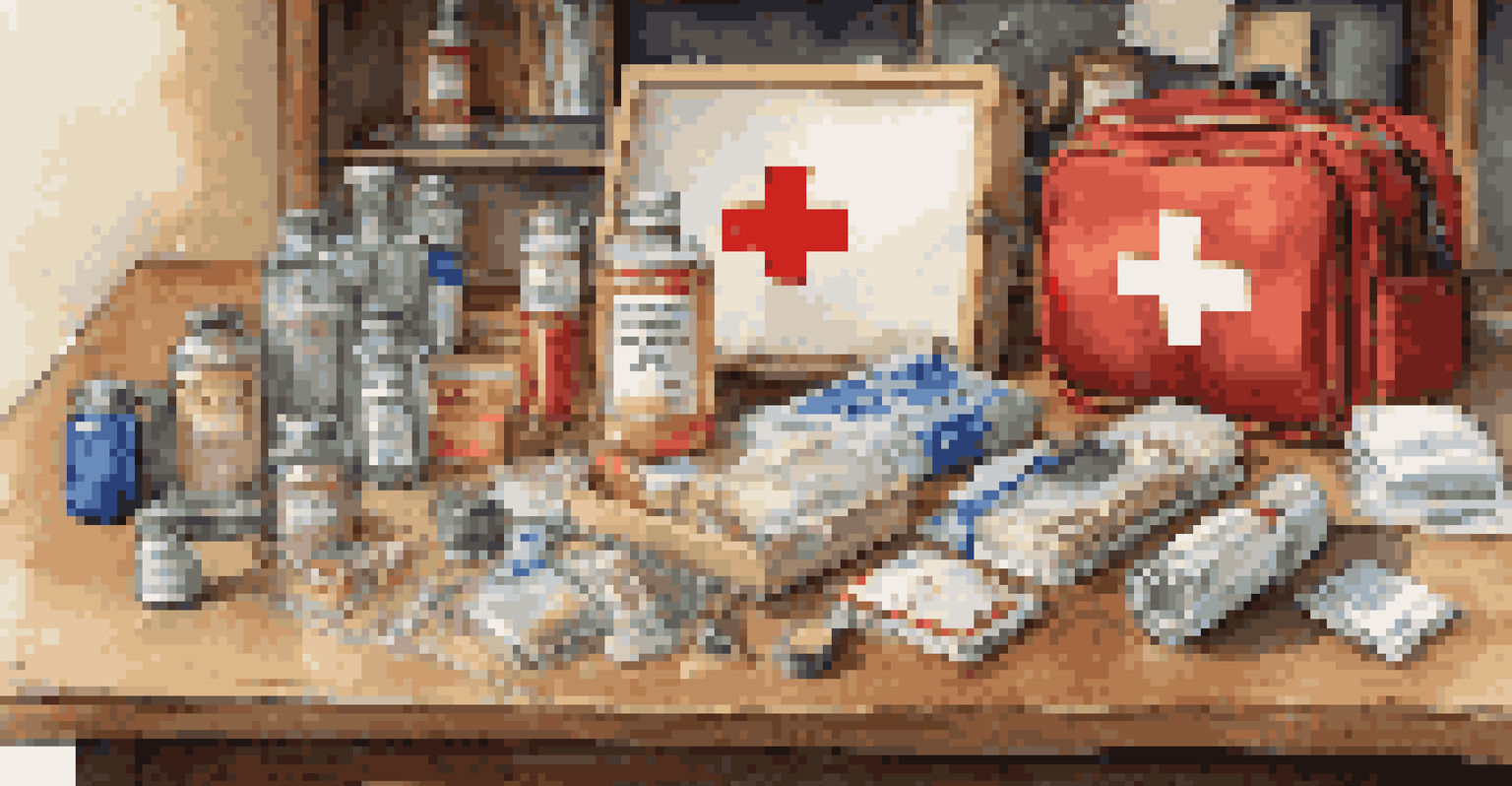Preparing for Emergencies on Group Travel: Essential Tips

Understanding the Importance of Emergency Preparedness
When traveling in a group, being prepared for emergencies is crucial. Whether you're hiking in the mountains or exploring a new city, unexpected events can happen. Having a solid plan in place can make all the difference in ensuring everyone stays safe and calm during a crisis.
By failing to prepare, you are preparing to fail.
Consider the unique dynamics of your group. Different individuals may have various needs, such as medical conditions or mobility issues. By recognizing these differences and planning accordingly, you can create an inclusive strategy that caters to everyone’s safety and comfort.
Furthermore, emergency preparedness fosters a sense of unity within the group. When everyone knows the plan and their roles, it promotes teamwork and reduces panic. In essence, preparation is not just about safety; it's about building trust and camaraderie among travelers.
Create a Comprehensive Emergency Plan
A comprehensive emergency plan is your roadmap during a crisis. Start by identifying potential risks specific to your destination, such as natural disasters or health emergencies. Once you have this information, outline clear steps on how to respond to each situation, ensuring every group member understands their responsibilities.

Additionally, include contact information for local emergency services, hospitals, and your country's embassy. This information should be easily accessible to everyone, perhaps stored in a shared document or printed and distributed among the group. Being prepared with the right contacts can save precious time in an emergency.
Importance of Group Emergency Plans
Having a solid emergency plan fosters safety, unity, and trust among group members during travel.
Finally, review the plan regularly, especially before embarking on your trip. A few minutes spent revisiting the emergency procedures can reinforce everyone's understanding and readiness. Remember, a well-informed group is a safer group!
Pack an Emergency Kit for the Group
An emergency kit is an essential item for any group travel adventure. This kit should include basic first aid supplies, non-perishable food, water, flashlights, and a whistle. By having these items readily available, you can address minor injuries or unexpected situations without delay.
In preparing for battle, I have always found that plans are useless, but planning is indispensable.
Don’t forget to customize the kit based on your group’s specific needs. For example, if someone in the group requires medication, ensure that extra doses are packed. Additionally, consider including items that cater to various scenarios, such as a portable phone charger or a multi-tool.
Remember to check the kit before each trip to replace any expired items and replenish supplies. Keeping the kit organized and accessible will help ensure that you can act quickly should the need arise.
Establish Communication Protocols
In any emergency, effective communication is key. Before your trip, establish clear communication protocols among group members. Decide on a primary meeting point in case you get separated, and agree on how to contact one another in different scenarios, such as using group messaging apps or walkie-talkies.
It's also wise to designate a group leader who will take charge during emergencies. This individual should be familiar with the emergency plan and serve as the go-to person for information and coordination. Having a leader can streamline decision-making and reduce confusion in high-pressure situations.
Pack a Tailored Emergency Kit
A customized emergency kit with essential supplies ensures that the group is prepared for various situations.
Encourage everyone to carry a list of emergency contacts, including each other’s phone numbers. This simple step can be a lifesaver, ensuring that everyone can reach out for help if needed.
Know Local Emergency Resources and Services
Familiarizing yourself with local emergency resources can significantly enhance your group's preparedness. Research local hospitals, police stations, and emergency services before you travel. Knowing where these resources are located and how to contact them can save crucial time in an emergency.
In addition, understand the local laws and customs regarding emergencies. For instance, how do locals typically respond to natural disasters? Are there specific evacuation procedures to follow? This knowledge can help you navigate stressful situations more effectively.
Consider sharing this information with your group during your pre-trip meeting. By educating everyone about the local resources, you empower them to act confidently and intelligently when it matters most.
Conduct a Safety Briefing Before Departure
Before your group sets out, conducting a safety briefing is essential. This meeting should cover the emergency plan, communication protocols, and the contents of the emergency kit. It’s a great opportunity to address any questions or concerns group members may have, ensuring everyone is on the same page.
Incorporate role-playing scenarios into your briefing to make it interactive. For example, practice what to do if someone gets lost or if there’s a medical emergency. Engaging in these exercises can help reinforce the information and make group members feel more prepared.
Stay Informed and Communicate
Regular communication and staying updated on local resources enhance the group's ability to respond effectively in emergencies.
Finally, encourage open dialogue. Allow group members to share their thoughts and suggestions, as they may have valuable insights or experiences that can enhance the emergency plan.
Stay Informed During Your Trip
Staying informed about your surroundings is vital while traveling as a group. Regularly check local news and weather updates to stay aware of any potential threats. This vigilance can help you avoid dangerous situations before they escalate.
Use technology to your advantage, such as downloading local emergency apps or following relevant social media accounts. Being plugged into real-time information can provide you with timely alerts about any emergencies or safety advisories.

Encourage group members to communicate any concerns they might have during the trip. A culture of openness can help everyone stay aware of potential issues, fostering a safer environment for the entire group.
Reflect and Learn from the Experience
After your trip, take some time to reflect on the group’s emergency preparedness. Discuss what worked well and what could be improved. This debriefing can provide valuable insights that enhance future travel experiences.
Encourage group members to share their personal experiences and feelings about the emergency procedures. Did they feel prepared? Were there any unexpected challenges? Gathering this feedback can help you adapt and refine your emergency plan for next time.
Ultimately, learning from each travel experience can foster a culture of safety and preparedness in your group. With every adventure, you become more equipped to handle whatever comes your way!